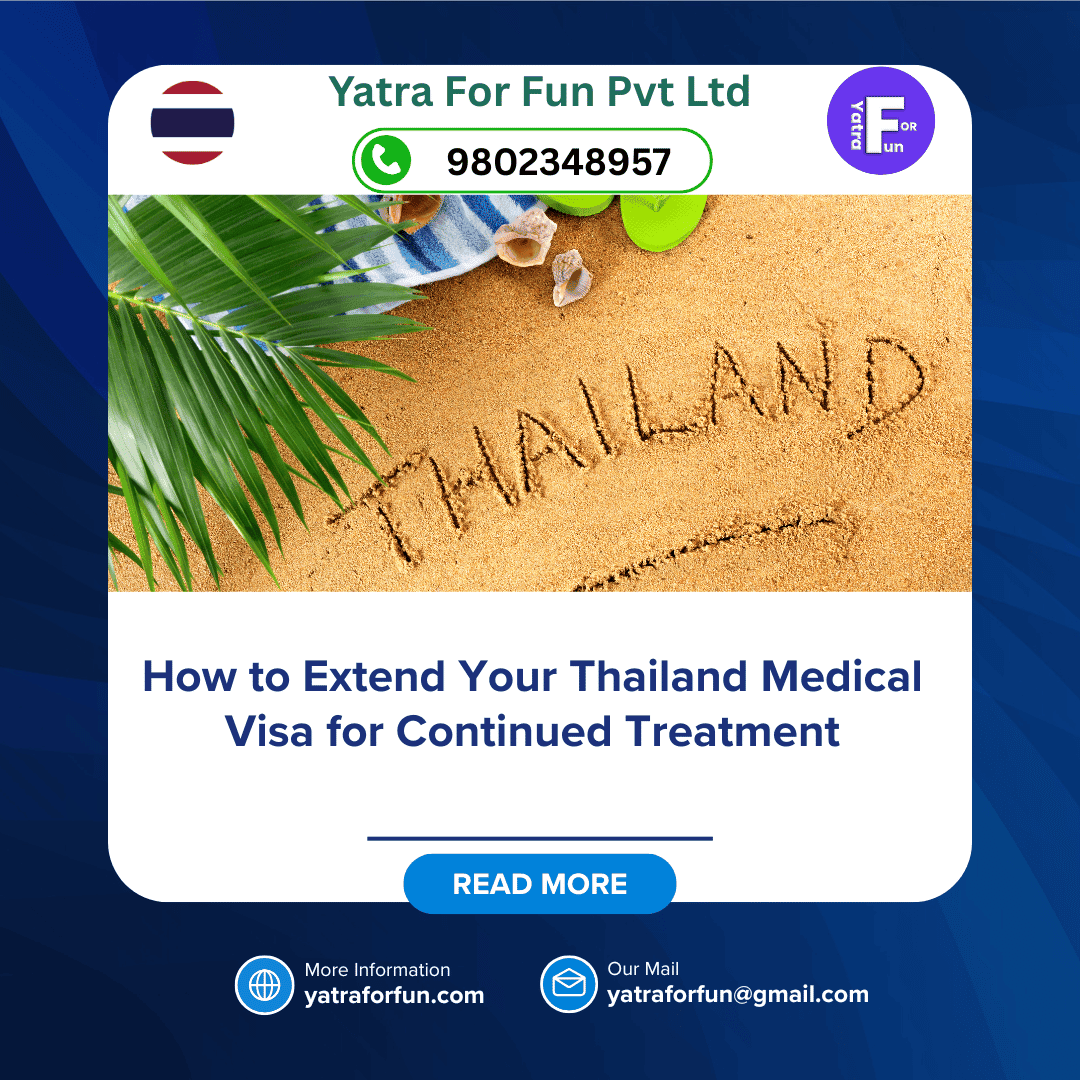By Sandeep Chaudhary
How to Extend Your Thailand Medical Visa for Continued Treatment

For Nepali patients receiving ongoing treatment in Thailand, visa extension becomes essential when the medical process lasts longer than the initial visa validity. The Thailand Medical Treatment Visa (MT or Non-Immigrant “O” Medical Visa) generally allows a stay of 60 to 90 days, depending on the visa type issued by the Royal Thai Embassy in Kathmandu or the Thailand eVisa portal. However, many medical treatments — such as surgery recovery, physiotherapy, or cancer care — require more time. In such cases, the Thai Immigration Bureau allows patients to extend their medical visa within Thailand by submitting the appropriate documents from their treating hospital.
The extension process is designed to ensure that only genuine patients with ongoing treatment needs are granted additional stay. To apply, the patient must first visit the Thai Immigration Office nearest to the hospital (commonly in Bangkok or provincial immigration branches) before the visa expiry date. The most important document required is a medical certificate or continuation letter from the Thai hospital. This document must confirm that the applicant is still undergoing treatment and specify the estimated duration required for recovery. The letter must be written on official hospital letterhead, include the attending doctor’s name, license number, and signature, and be stamped by the hospital’s international patient department.
Other supporting documents include a copy of the passport (bio page and visa entry stamp), arrival/departure card (TM.6), current visa sticker page, proof of residence in Thailand (hotel booking or hospital stay record), and bank statement or financial proof showing the applicant’s ability to fund their extended stay. The patient must also fill out the TM.7 Visa Extension Form, available at immigration offices or downloadable online from the Thai Immigration Bureau website.
The visa extension fee is THB 1,900, payable in cash at the immigration office. Applicants should apply at least 5–7 days before the current visa expires to allow for verification and processing. The standard approval time is 3–5 working days, although some cases may require longer if additional checks are conducted. Once approved, the visa extension typically grants an additional 30 to 60 days of stay, depending on the hospital’s recommendation and the treatment nature. Patients with critical or long-term conditions (such as kidney treatment, heart surgery, or cancer therapy) may receive multiple extensions upon valid hospital recommendation.
Some major hospitals like Bumrungrad International, Samitivej Sukhumvit, and Bangkok Hospital have dedicated international visa desks that coordinate directly with immigration authorities for patient visa extensions. These services ensure smoother documentation and reduce the need for patients to handle paperwork on their own.
To make this process even easier, Yatra For Fun Pvt. Ltd., Nepal’s leading visa assistance and travel company, offers end-to-end support for medical visa extensions. The agency collaborates with Thai hospitals to secure valid continuation letters, organize document translation if needed, and coordinate with immigration offices to ensure timely renewal of stay. Patients or their family members can contact 9802348957 or 9708072951, or visit https://www.yatraforfun.com for expert guidance and support during their treatment period in Thailand.









